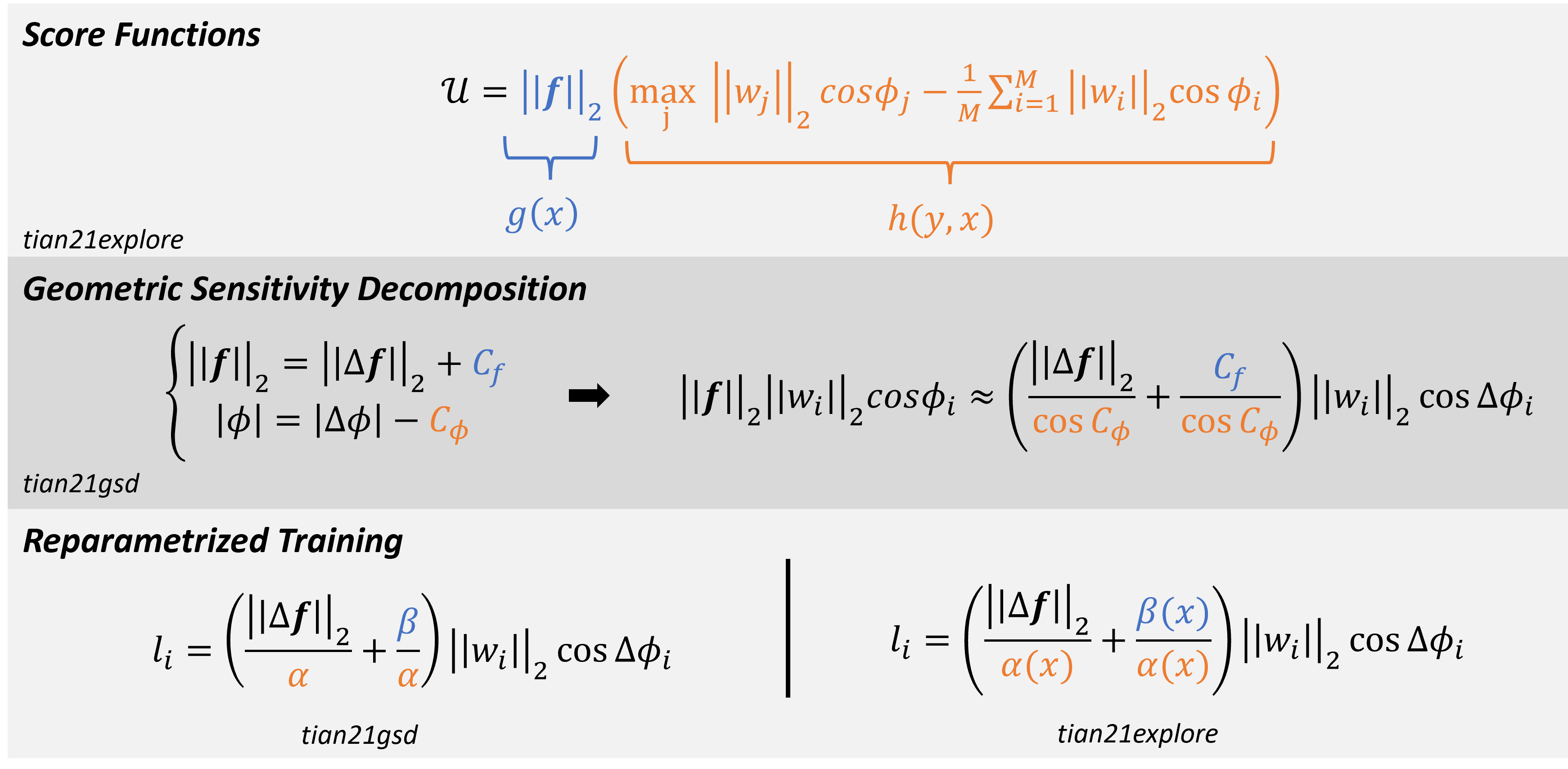A Geometric Perspective towards Neural Calibration via Sensitivity Decomposition
It is well known that vision classification models suffer from poor calibration in the face of data distribution shifts. In this paper, we take a geometric approach to this problem. We propose Geometric Sensitivity Decomposition (GSD) which decomposes the norm of a sample feature embedding and the angular similarity to a target classifier into an instance-dependent and an instance-independent component. The instance-dependent component captures the sensitive information about changes in the input while the instance-independent component represents the insensitive information serving solely to minimize the loss on the training dataset. Inspired by the decomposition, we analytically derive a simple extension to current softmax-linear models, which learns to disentangle the two components during training. On several common vision models, the disentangled model outperforms other calibration methods on standard calibration metrics in the face of out-of-distribution (OOD) data and corruption with significantly less complexity. Specifically, we surpass the current state of the art by 30.8% relative improvement on corrupted CIFAR100 in Expected Calibration Error. Code available at https://github.com/GT-RIPL/Geometric-Sensitivity-Decomposition.git.
PDF Abstract NeurIPS 2021 PDF NeurIPS 2021 Abstract

 CIFAR-10
CIFAR-10
 CIFAR-100
CIFAR-100
 SVHN
SVHN